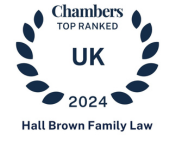Divorcing Couples’ Possession Rows Discouraged as Court Pressures Increase
Published on 05 April, 2017 | Back to News/Press
This news/press has no post imageJudges are trying to prevent divorcing British couples adding to the growing pressure on court schedules by preventing arguments about how best to divide possessions.
One of the country’s leading family law firms has reported that spouses were even being reminded not to derail courtroom efforts to agree settlements with disputes about items worth thousands of pounds.
James Brown, the Managing Partner of Hall Brown Family Law, claimed that three-quarters of all divorces involved husbands and wives rowing over possessions.
However, he said such contested divorces were now more likely to feature complaints that courts were not willing to allocate time to deliberate ownership of valuable jewellery, furniture and even Christmas decorations.
Mr Brown suggested courts were eager to find ways both to reduce conflict between separating spouses and cope with an increasing workload.
“Roughly 75 per cent of all the divorces which we handle now involve some degree of dispute about who should be awarded ownership of a range of possessions.
“Courts are conscious that determining who gets what can delay matters and inflate the bill for divorce. That’s partly because securing detailed valuation evidence can cost several thousand pounds depending on the items concerned.
“The need for proportionality is regularly underlined. If the possessions in question involve classic cars or artworks worth six or seven-figures, then they will of course make a material difference to a settlement and are always considered.
“If the chattels are of lesser value and if they form a less substantial portion of a couple’s overall worth, judges are generally unwilling to devote too much time to considering them.
“That has led to complaints that the question of who keeps certain relatively valuable items is being overlooked in order to keep the broad agreement about property, pensions and cash on-track.
“While some individuals have suggested this represents something of a blind spot, the courts clearly want to ensure overall balance and fairness, especially at a time when their resources are becoming ever more stretched.”
The most recent figures published by the Office for National Statistics (ONS) revealed that there had been 111,169 divorces in England and Wales during 2014 – a drop of nearly three per cent on the previous year.
Even so, the Ministry of Justice has disclosed how the court system was handling more work than ever before.
Data released by the ministry has shown that the overall caseload dealt with by family courts rose by four per cent in the three months to September last year.
Meanwhile, the number of couples requesting court hearings to divide their joint assets has increased by eight per cent in a single year. Over the same period, however, two per cent fewer such matters were concluded.
Mr Brown explained that couples were required to disclose all assets worth in excess of £500 as part of the divorce process.
Even so, he described how one judge refused one couple’s courtroom request for expert valuation of a collection of wristwatches worth several thousand pounds.
Mr Brown also outlined how one ex-husband’s attempts to claim ownership of expensive furniture left in the family home after he moved out were also rebuffed.
He said that the situation had changed “markedly” since 2013, when one High Court judge offered a man £10,000 to help his ex-wife recover four pieces of jewellery.
“Attempts to persuade spouses to focus on broader divorce settlement rather than individual items have become far more intense since then.
“That should, though, certainly not be regarded as an opportunity for spouses to engage in dishonesty and almost hide valuables.
“Instead, it is an illustration of courts trying to avoid argument and delay by pointing out that divorce is not necessarily a mathematical process in which every single pound is accounted for but one in which law allows for considerable discretion in how couple’s assets divided.”







